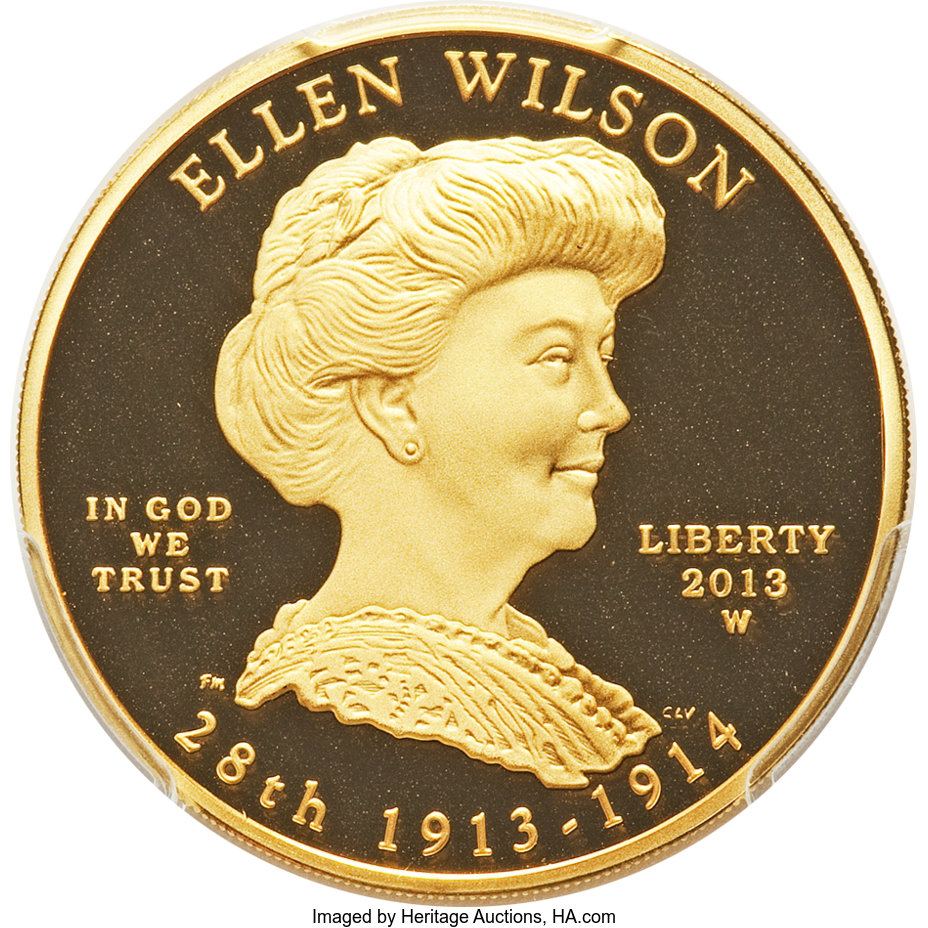
By Jim O’Neal
In 1912, President William Howard Taft and ex-President Theodore Roosevelt managed to divide the Republican Party to the extent that (Thomas) Woodrow Wilson regained the White House for the Democrats. Even Socialist Eugene V. Debs snared nearly a million votes for his policy to replace America’s capitalist system with a socialized economic system. Wilson was the only Democratic Party president elected between 1892 and 1932.
Success in office came easily for Wilson. He was more effective with groups than one-on-one and he broke a tradition that extended back to Thomas Jefferson. He read his State of the Union to Congress rather than submitting a written report. Another change was to keep a sharp line between his public and personal life (a habit developed during his days in academia). Surprisingly, he did not believe in racial equality and some Cabinet organizations were totally racially segregated. His wife Ellen was different. Despite supporting the racial segregation that resulted from the appointment of Southern Senators, she was appalled by the slums that surrounded the White House and became an active crusader to clean up the densely populated, alley blight that was pervasive.
Her failing health was exacerbated when she tripped on a throw rug and fell. She was confined her to bed each day for four hours. In July 1914, she was diagnosed with tuberculosis of the kidneys – a form of Bright’s disease that proved fatal. She died on Aug. 6, 1914. In addition to being stricken with grief, Wilson was dismayed by what would become World War I, when Austria declared war on Serbia after an assassination. The president was grateful that the First Lady was never made aware that the world was crashing into ruin. “It would have broken her heart.”
As the world continued toward a catastrophic war, President Wilson buried himself in work and public appearances were scarce. Newspaper front pages were dominated by the war in Europe and there was a palpable hostility against imperial Germany, despite the president urging for moderation. A European land war did not appear to be a threat to the United States. Our oceans ensured our domestic security.
Occasional positive events punctuated the war clouds, which were growing darker. On Jan. 15, 1915, Wilson hosted a ceremony to inaugurate the first transcontinental telephone call from New York to San Francisco. Ten days later, Germany ominously announced the beginning of submarine warfare around the British Isles. Wilson rushed to mediate (another hopeless gesture), followed by a formal warning reminding Germany of the rights of neutrality for American ships. Sensing a deeper involvement, Secretary of State William Jennings Bryan protested the statement as Wilson remained steadfast.
Sixteen months after Ellen’s death, Wilson remarried and during this interlude the president continued to guide America over the hazardous shoals of neutrality. It was obvious that American involvement could tip the scales of war to either side, but the choice was to avoid war and treat it as rivalry between degenerate political systems. After the Germans sank the RMS Lusitania, the loss of life offended the sense of American justice and extensive war propaganda inflamed it further. The distant war seemed ever so closer.
In the fall of 1916, Wilson produced a message to the warring nations of Europe to lay down their arms, accept American mediation and work together to ensure peace and justice throughout the world. He considered it a masterpiece. “There are some sentences,” he wrote in his diary, “that will live as long as human history.” (Uh, maybe not).
When the United States entered the war, American armies propped up France and England when they were on the brink of collapse. The entire European financial system was crumbling sans U.S. credit.
When Wilson traveled to Paris to pursue his lofty goal of creating a just peace, America’s world prestige and power was at an all-time high. His idealistic 14-point plan was lauded around the world – promising democracy and self-determination for all. Wilson was arguably the most famous man alive. Had he merely presented his plan for a peace framework, his position would have been impregnable. He could have departed and ruled from the safety of the White House. Instead, he stayed and got ensnared by his sharp-elbowed allies, who proceeded to exploit his proximity and inculcate their tribal animosities. Most disastrous was his stubborn inability to compromise.
The ensuing meetings were little short of a disaster and he managed to alienate both his allies and the Germans. Upon his return, he was unable to get even his colleagues to support his plan for a League of Nations; he had a stroke and was unable to govern. It is still a mystery how little was accomplished and how much carnage was suffered. Worse was the planting of seeds guaranteeing a short reprieve followed by a resumption of hostilities.
But then, the First World War was a real mystery … its origins baffling, as were the events that followed. How is it possible for a prosperous continent – a symbol of wealth, global power, at the peak of intellectual and cultural achievement – opt to mobilize for total war, and in the process commit their future to pointless slaughter?
If reincarnated, their first question would likely be, What’s changed?
 Intelligent Collector blogger JIM O’NEAL is an avid collector and history buff. He is president and CEO of Frito-Lay International [retired] and earlier served as chair and CEO of PepsiCo Restaurants International [KFC Pizza Hut and Taco Bell].
Intelligent Collector blogger JIM O’NEAL is an avid collector and history buff. He is president and CEO of Frito-Lay International [retired] and earlier served as chair and CEO of PepsiCo Restaurants International [KFC Pizza Hut and Taco Bell].
